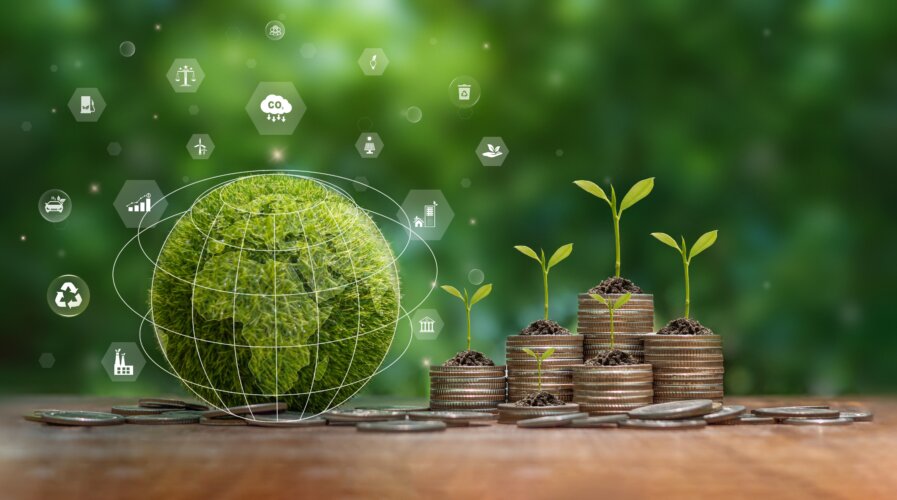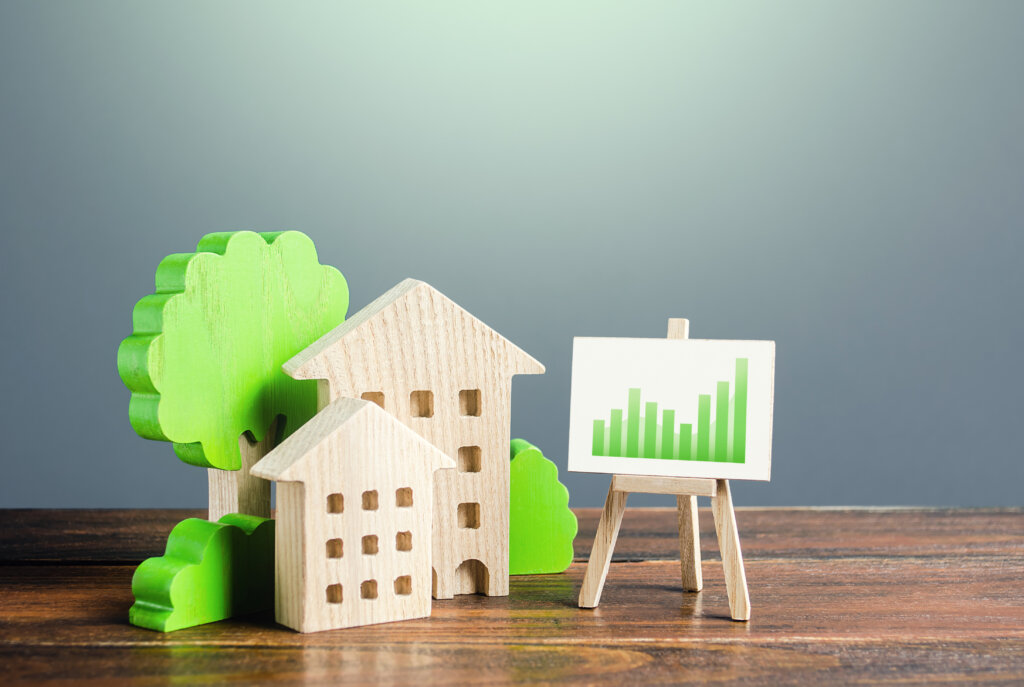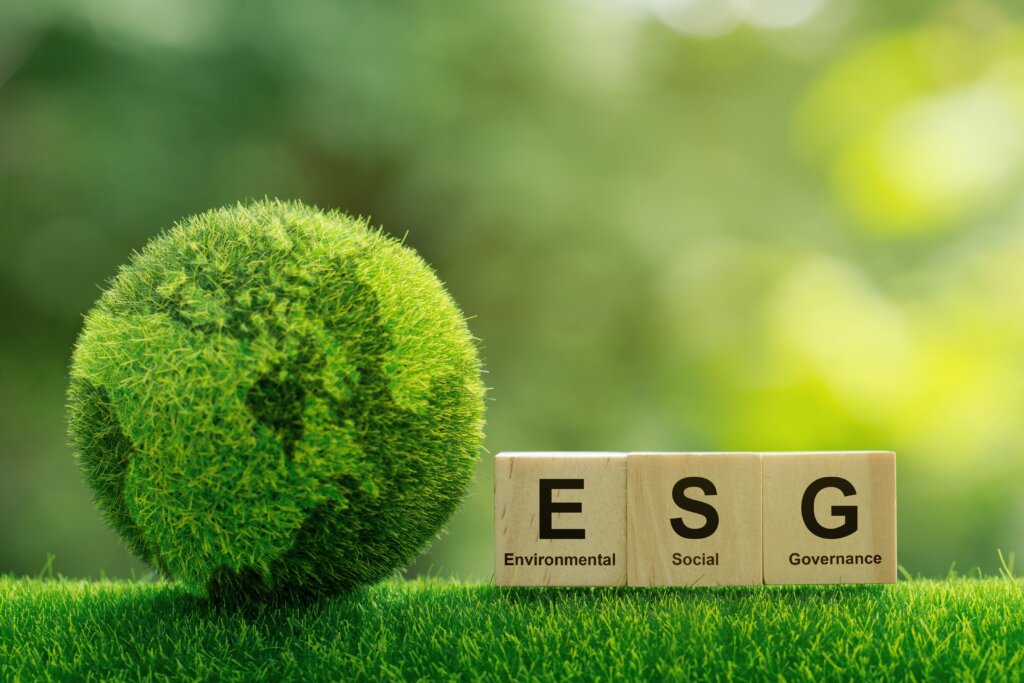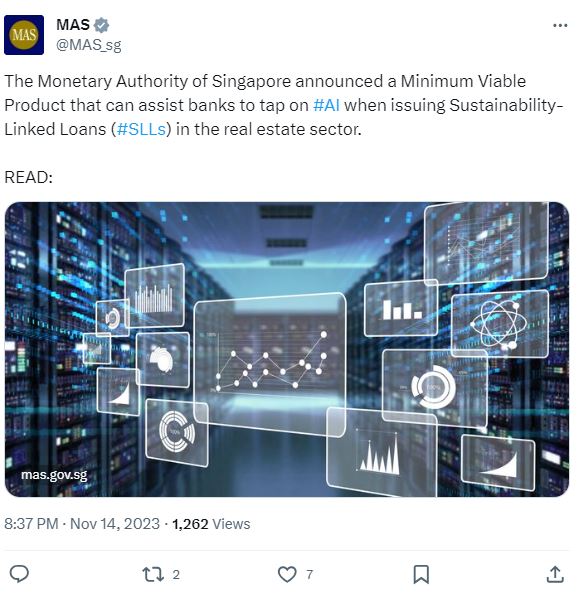
The Monetary Authority of Singapore (MAS) unveiled a Minimum Viable Product (MVP) that can assist banks to tap on AI issuing Sustainability-Linked Loans (SLLs) or green loans in the real estate sector. (Image by Shutterstock).
The ESG dilemma: green loans vs greenwashing
- Greenwashing can be a problem for green loans.
- The Monetary Authority of Singapore unveils an AI tool to help banks on green loan approvals.
- The tool can monitor organizations for greenwashing.
When meeting environmental, social, and governance (ESG) requirements, most organizations are eager to showcase their actions. In fact, ESG has proven to be a critical factor that determines how sustainable an organization is or how much it commits to social responsibility and how other businesses make informed decisions about which companies or organizations to support or avoid.
Today, ESG is fundamental to conversations businesses have, especially regarding investing. Companies with clear and well-defined ESG goals often end up getting better deals than those still in their planning stages. But the focus on ESG has also been a concern as some companies are now using greenwashing tactics to get deals done.
Greenwashing conveys a false impression or misleading information about how a company’s products are environmentally sound. Greenwashing involves making an unsubstantiated claim to deceive consumers into believing that a company’s products are environmentally friendly or have a more significant positive environmental impact than they actually do.
Greenwashing may also occur when a company attempts to emphasize sustainable aspects of a product to overshadow the company’s involvement in environmentally damaging practices.
In Asia Pacific, South Korea became the first nation in East Asia to draft a law that fines firms for false or exaggerated green claims, as companies in the region face more scrutiny over their environmental credentials and net-zero emissions pledges. The Australian Competition and Consumer Commission has warned companies that using words like “green” and “sustainable” when describing their environmental strategies could be unlawful.
In Southeast Asia, Singapore has been leading ESG initiatives in the region. However, according to a report by GoImpact alongside the Chinese University of Hong Kong Business School and Ant Group, while countries like Singapore revel in the potential of their green initiatives, they are also confronting persistent challenges: ensuring data integrity and the pervasive peril of greenwashing, which, if left unchecked, could impede the country’s progression towards achieving its sustainability goals.

Greenwashing is the process of conveying a false impression or misleading information about how far a company’s products are environmentally sound. (Image by Shutterstock)
From greenwashing to green loans
So why is there so much greenwashing happening? Apart from seemingly stating that an organization is concerned about sustainability and is focused on ESG, businesses practice greenwashing to get more deals and access to finance.
While banks provide loans and funds to businesses, organizations applying for funds for ESG initiatives get a better deal. Known as green loans, these loans are a form of financing that enables borrowers to use the proceeds to exclusively fund projects that substantially contribute to an environmental objective, such as renewable energy, green buildings, green products, or green processes.
According to the World Bank, green loans follow the Green Loan Principles, which provide an international standard based on four core components: use of proceeds, process for project evaluation and selection, management of proceeds, and reporting.
Green loans are necessary because they help align lending and environmental objectives and help borrowers communicate the greening of their operations and supply chain. Green loans also offer potential benefits such as lower interest rates, longer repayment terms, tax incentives, or preferential regulatory treatment.
Green loans can be used by various types of borrowers, such as individuals, businesses, or governments, to finance different kinds of green projects, such as solar panels, electric vehicles, energy-efficient buildings, or low-carbon production.
As well as green loans, there are also green bonds, which usually have a more significant volume and may have higher transaction costs. Green bonds could be listed on an exchange or privately placed. Both instruments specify that 100% of the proceeds should be used only for green-eligible activities.

Given the concerns of greenwashing, financial institutions need more data and input when providing green loans. (Image by Shutterstock).
Examples of green loan financing
In Japan, a landmark green loan in Japan was announced on 8 September 2022 as part of a new Green Financing Framework. The green loan is financing AirTrunk’s 110+MW West Tokyo data centre, AirTrunk TOK2, and it was the first green loan for a data centre in Japan and the first to use operating ‘power usage effectiveness’ PUE and water productivity eligibility criteria.
Another data center platform company, Digital Edge, has also successfully secured the platform’s first-ever green loan to support the first phase of development of the company’s previously announced 100MW data center project in Seoul (SEL2). The facility will be the largest commercial colocation facility in South Korea. This financing also represents the first green loan for a data center project in South Korea.
Over in Hong Kong, ESR Group and Chinachem Group have closed Hong Kong’s first-ever green loan to develop a logistics center. The HK$8.8 billion green loan is one of the biggest in Hong Kong in 2023, and it will be used to finance the construction of Kwai Chung Cold Storage Logistics Centre, Hong Kong’s largest cold storage facility in the last 20 years.

Green loans follow the Green Loan Principles. (Image by Shutterstock).
MAS to use AI for green loans
Given greenwashing concerns, financial institutions need more data and input when providing green loans. As such, the Monetary Authority of Singapore (MAS) unveiled a Minimum Viable Product (MVP) that can help banks using AI when issuing Sustainability-Linked Loans (SLLs) or green loans in the real estate sector.
The MVP was developed by the Project NovA! consortium, which has concluded the first phase of its work. The first phase of Project NovA!, which was unveiled in 2021, focused on addressing the key challenges faced by banks in extending green loans:
- Inaccurate settings for Sustainability Performance Targets (SPTs) due to data scarcity and inconsistency.
- Greenwashing concerns which affect around 50% of green loans.
- Inefficient processes leading to manual errors in reading and interpreting disclosures from lenders.
At the Singapore FinTech Festival 2023, Tan Kiat How, Senior Minister of State for the Ministry of National Development and Ministry of Communication and Information, launched the next phase of NovA! Tan also announced the strategic collaboration between the MAS and the Building and Construction Authority (BCA) to connect data and services from BCA’s Super Low Energy Building (SLEB) database.

Banks to tap into AI when issuing Sustainability-Linked Loans (SLLs) or green loans in the real estate sector.
Specifically, the three core features in the AI-powered MVP developed in phase one of Project NovA! will help banks address the challenges:
- Facilitate setting performance targets for green loans in the real estate sector through peer and industry benchmarking – by harnessing data from government sources and conducting property-specific peer and industry comparisons; AI technology can be used to help banks set KPIs judiciously and establish practical SPTs to enable a more accurate sustainability assessment.
- Monitor against selected KPIs/SPTs to curb greenwashing – continuously using buildings’ energy consumption data at the source, Nova! lets banks compare borrowers’ current sustainability performance with the agreed SPTs on a more timely basis. Risk assessment teams from banks can swiftly identify discrepancies, ensure SLLs maintain their intended impact, and curb greenwashing.
- Enhance processing of sustainable finance transactions through the Autonomous Documentation Insights Engine (ADIE). This feature utilizes Natural Language Processing to help banks’ relationship managers, KYC teams, and sustainable finance extract sustainability insights, such as a company’s total greenhouse gas emissions, swiftly and accurately from diverse sources. This is a shift away from the manual process of disclosure documents, allowing for more informed decision-making based on comprehensive data extracted from borrower disclosures.
In the next phase, the MAS will collaborate with the BCA to tap into the SLEB database so that Nova! can access country-wide data on green buildings. This will help banks to identify prospective green building projects, achieve real-time SPT monitoring, and accelerate green financing within the real estate sector. NovA! will also extend its AI capabilities to support sustainable funding in other sectors, such as power and manufacturing.
READ MORE
- 3 Steps to Successfully Automate Copilot for Microsoft 365 Implementation
- Trustworthy AI – the Promise of Enterprise-Friendly Generative Machine Learning with Dell and NVIDIA
- Strategies for Democratizing GenAI
- The criticality of endpoint management in cybersecurity and operations
- Ethical AI: The renewed importance of safeguarding data and customer privacy in Generative AI applications






